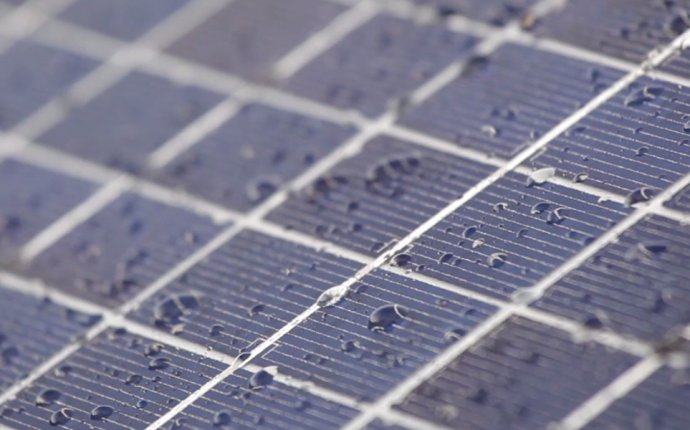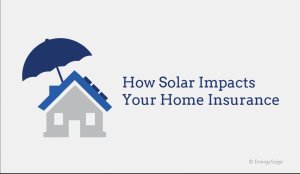
Solar Power Insurance
 More than one million homes have solar installed on their roofs as of 2016. Investing in a solar PV system has a variety of benefits: solar panels will reduce your electricity bills by generating electricity on-site for 25 years or more. A solar energy system can also increase your home value by tens of thousands of dollars. Home solar is a significant investment in your home, which leaves many homeowners wondering: do I need to get solar panel insurance or will my system be covered by my home insurance?
More than one million homes have solar installed on their roofs as of 2016. Investing in a solar PV system has a variety of benefits: solar panels will reduce your electricity bills by generating electricity on-site for 25 years or more. A solar energy system can also increase your home value by tens of thousands of dollars. Home solar is a significant investment in your home, which leaves many homeowners wondering: do I need to get solar panel insurance or will my system be covered by my home insurance?
The good news: most home insurance covers solar panels
Once a rooftop solar panel system is installed on your home, it is considered part of your home under most home insurance plans. That means that – in most cases – covering your solar panels under your home insurance won’t create the need for a special add-on (or “rider”), won’t change your plan, and won’t increase your premiums. That being said, every insurance policy is different, which is why you should still call your insurance company to confirm that your PV panels are covered.
While your home insurance likely covers your solar panels, there are a few things to keep in mind:
Your insurance company might require an add-on or separate policy for certain types of solar panel systems. While rooftop solar is typically covered in a standard policy, your insurer may or may not cover other types of installations, such as ground mounted solar panels and solar panel carports. Whether or not these separate systems are covered depends on your insurer’s policy. You may also be able to get an add-on or separate policy if your system is large enough to warrant its own coverage.
Solar is valuable, so you may want to raise your coverage limit. Your insurance policy’s coverage limit is the maximum amount that it will pay towards a covered loss. In 2016, the cost of an average 5-kilowatt solar panel system was $12, 500 after tax incentives and rebates; many homeowners will install systems sized at 10 kW or greater, which means that solar is an investment worth tens of thousands of dollars. While your solar panels are likely covered under your standard home insurance policy, you may want to talk to your insurer about raising your coverage limit. That way, you can be confident that you’re covered for all possibilities.
Your insurer may or may not cover damage caused during the installation process. When you call to confirm that your insurer covers solar panels, ask about whether the coverage extends to the installation process. Qualified solar installers will often offer a workmanship warranty that will cover you in the unlikely event that there is damage to your roof or your solar panels as a result of the installation process.
Whether you buy or lease your solar panels can make a difference in your policy. If you install a system with a lease or power purchase agreement (PPA), you are not technically the owner of the system – the company with whom you have the agreement owns the panels and is responsible for maintaining them. This means that you won’t need to worry about your home insurance covering solar panels. However, you should closely scrutinize any lease or PPA before you sign to ensure that your home and your solar panels are adequately protected in the event of a problem.
Regardless of home insurance, use quality solar panels and a well-vetted installer
Solar panels are very durable. Panel manufacturers test their products in real-life conditions and verify that they can withstand both the usual wear & tear and more extreme weather events like high winds, hail, and heavy snow. Your solar equipment will also come with warranties that range in terms and conditions; getting a strong solar panel warranty helps ensure that your system will produce clean, emissions-free electricity for decades.
However, not every solar panel is created equal. Explore multiple solar offers options to find the option has the appropriate equipment certifications and warranties for your needs. Additionally, spend some time looking for a solar installer that offers a design and workmanship warranty to demonstrate that they stand behind their work.
The EnergySage Solar Marketplace is the best way to quickly receive and compare multiple solar offers. EnergySage has a network of 350+ pre-vetted solar installers across the country waiting to provide you with quotes so you can identify the best option for your home. When you choose quality equipment and a qualified installer, you can be confident that your solar investment will pay major dividends.









